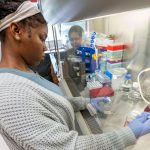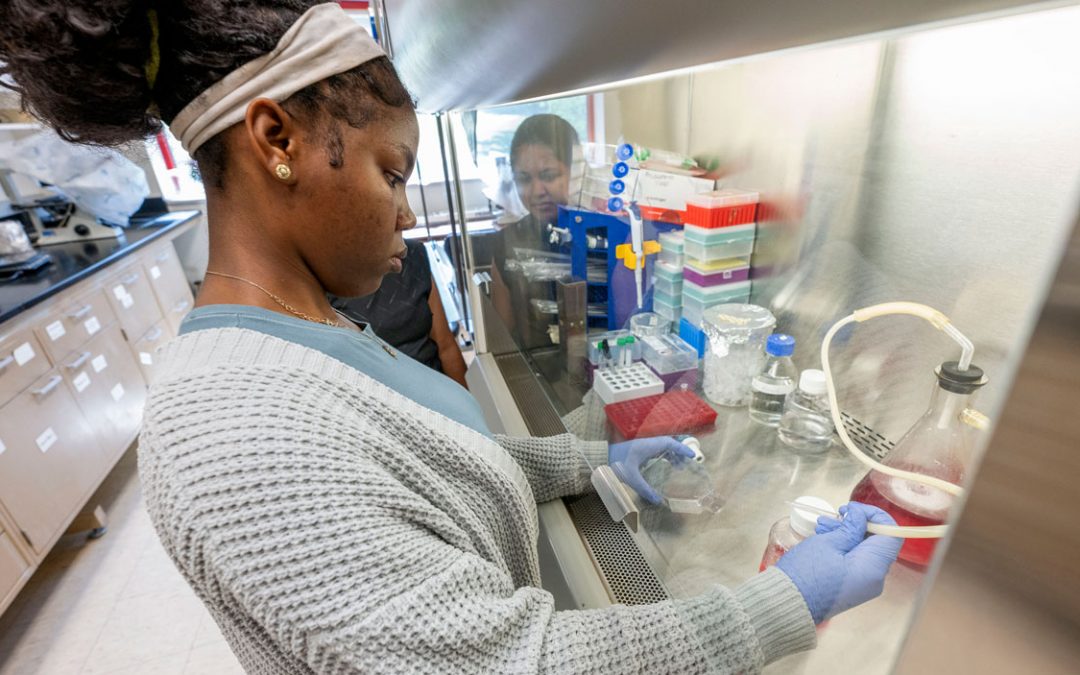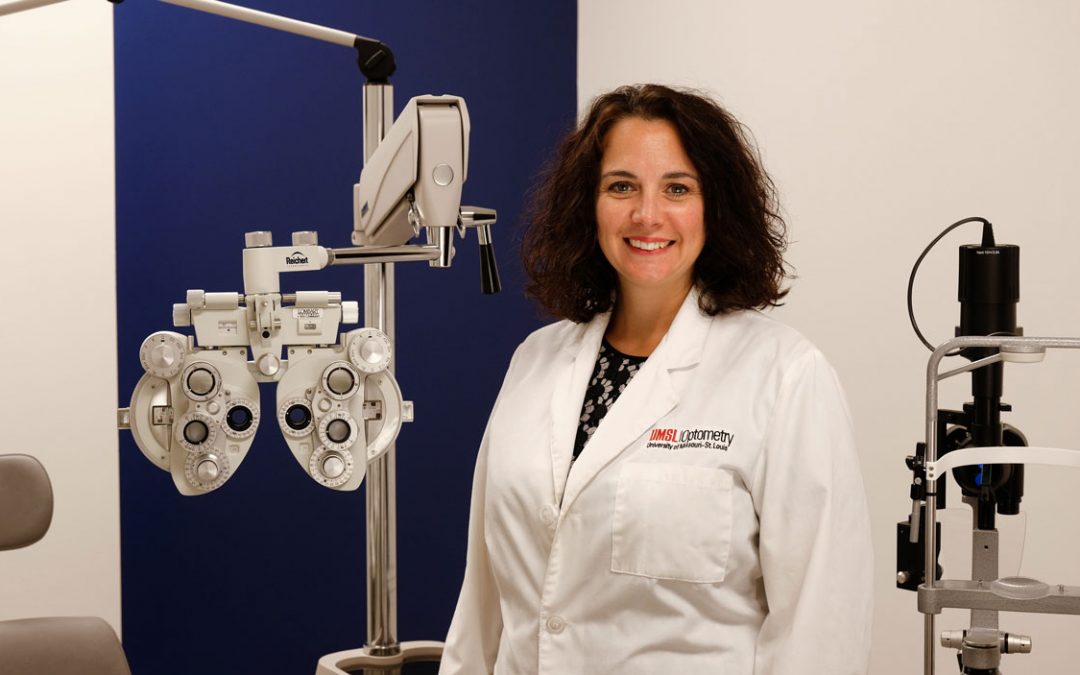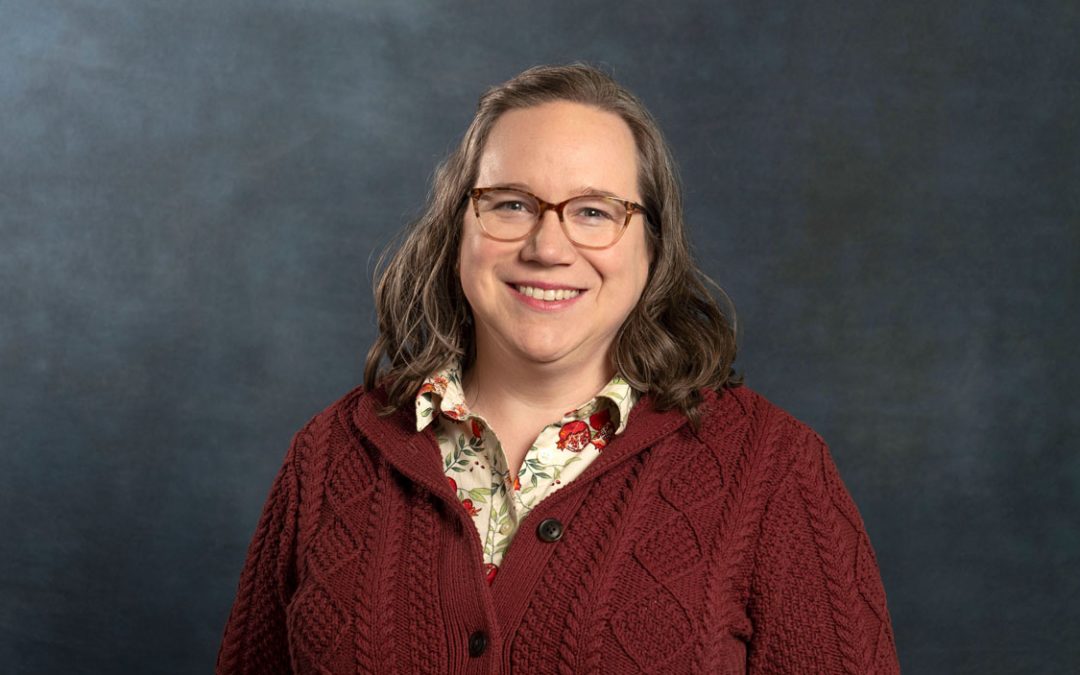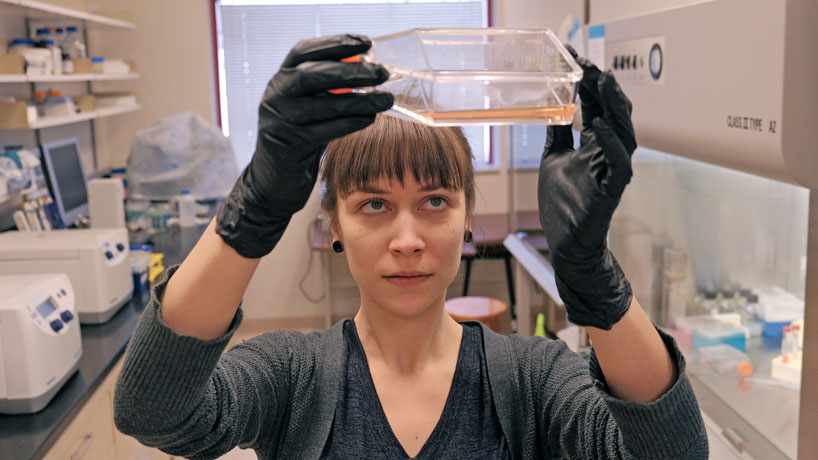
Senior biology major Christine Noto studies human neural cells for her research on Parkinson’s gene LRRK2, for which she won a College of Arts and Sciences Undergraduate Research Grant. (Photo by August Jennewein)
Christine Noto remembers excitedly copying her fourth grade science textbook word for word.
“I even remember drawing the pictures of the different levels of the atmosphere, too,” she said. “So I was a big dork. Still am.”
She teases about her enthusiasm for science, but the senior biology major at the University of Missouri–St. Louis landed herself a College of Arts and Sciences Undergraduate Research Grant to study one of the genes often overexpressed in Parkinson’s patients.
“Basically what I’m focusing on is one particular Parkinson’s related gene called LRRK2. I’ll be investigating this gene and how Puf proteins and miRNAs work in the regulation of LRRK2’s stability and translation.”
Noto’s research is overseen by Wendy Olivas, associate professor of biology. Noto will pick up from Joseph Russo’s (PhD biology 2014) previous findings of the Puf protein binding sites in LRRK2.
“We’re curious to know if somehow the mutations of these Puf proteins and miRNAs in Parkinson’s play a role in the overexpression of the LRRK2 gene,” Noto said. “In normal cells, Pufs and miRNAs act to regulate low levels of expression of this gene.”
Working in the Olivas lab is Noto’s first experience with research. Every day she goes into the Cell Culture Facility at UMSL to attend to human neural cells, specifically the HEK293 cells and SH-SY5Y cells.
“I have to come in first thing and check them myself and make sure that they’re happy,” said Noto, who feeds the cells and tracks things like their density. “They’re like little lives that are dependent on me for their survival.”
She works in the facility’s hood. Only her arms, sterilized with ethanol nearly 15 times each session and gloved, enter the vented sterile hood allowing her access to the neural cells.
Noto was excited and nervous when she learned she had won the grant, which pays for supplies like sterile disposable pipettes and reagents, as well as RNA and protein extraction kits and miRNA inhibitors.
“It can be really scary when you go into a place, and you don’t really know anything,” she said. “But I have learned so much, just an incredible amount of information and techniques on how to work with human cells in a sterile environment. So it’s overwhelming, but I love it.”
She also finds it “pretty cool” and “special” to be allowed behind the doors that say “No classrooms. Research only. Authorized personnel.”
“I get to go back there!” she said.
Beyond that, Noto finds this research opportunity to be a crucial part of her undergraduate experience at UMSL.
“It’s fueled a passion that I knew was there, but it’s given me tools to actually pursue something like graduate school.”
She’s hoping her research on LRRK2 will distinguish her on her applications.
Even so, Noto doesn’t forget the higher purpose of her research on Parkinson’s.
“The data and analysis will contribute to a larger body of knowledge of previous Parkinson’s research,” she said. “Because any information is good, even if it’s not what we wanted or not what we expected. Sometimes negative data is just as good because then it narrows where it is you have to look for the right answers.”
While she admits it’s no cure for the debilitating disease, she also believes in the power of research to eventually lead to one.
Media Coverage:
Missouri Cures
Health Crisis Parkinson Updated News



